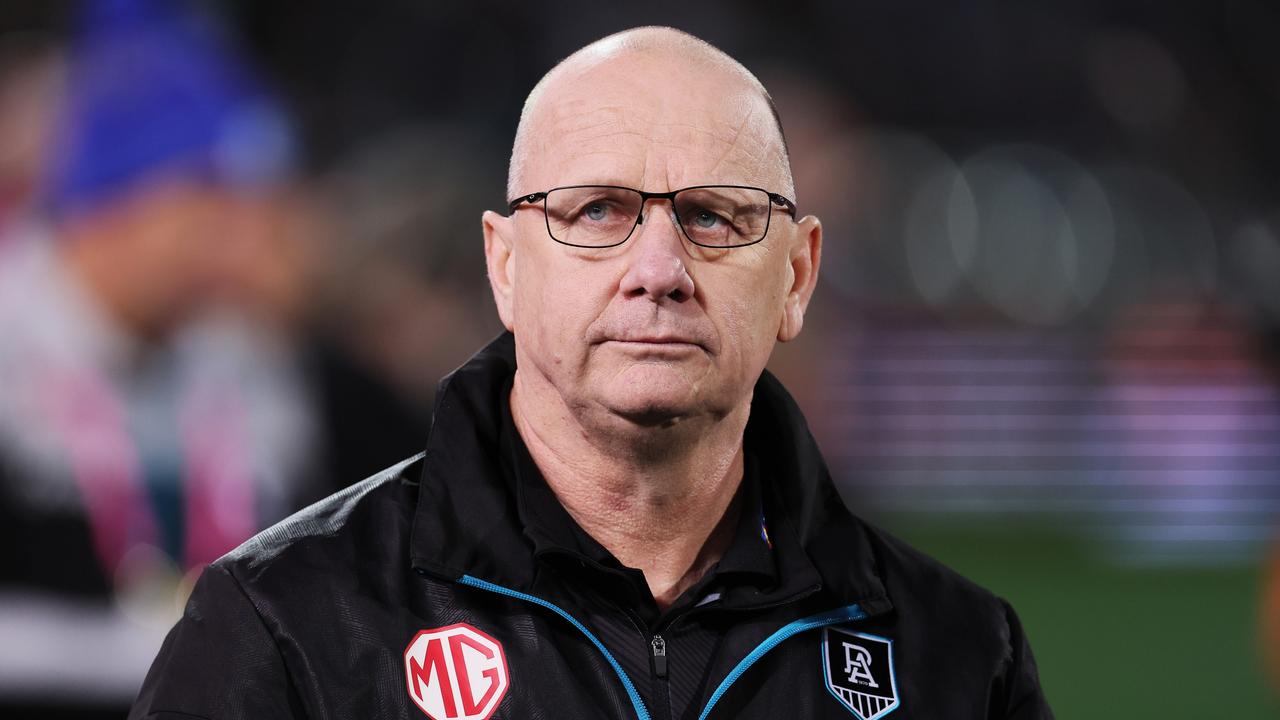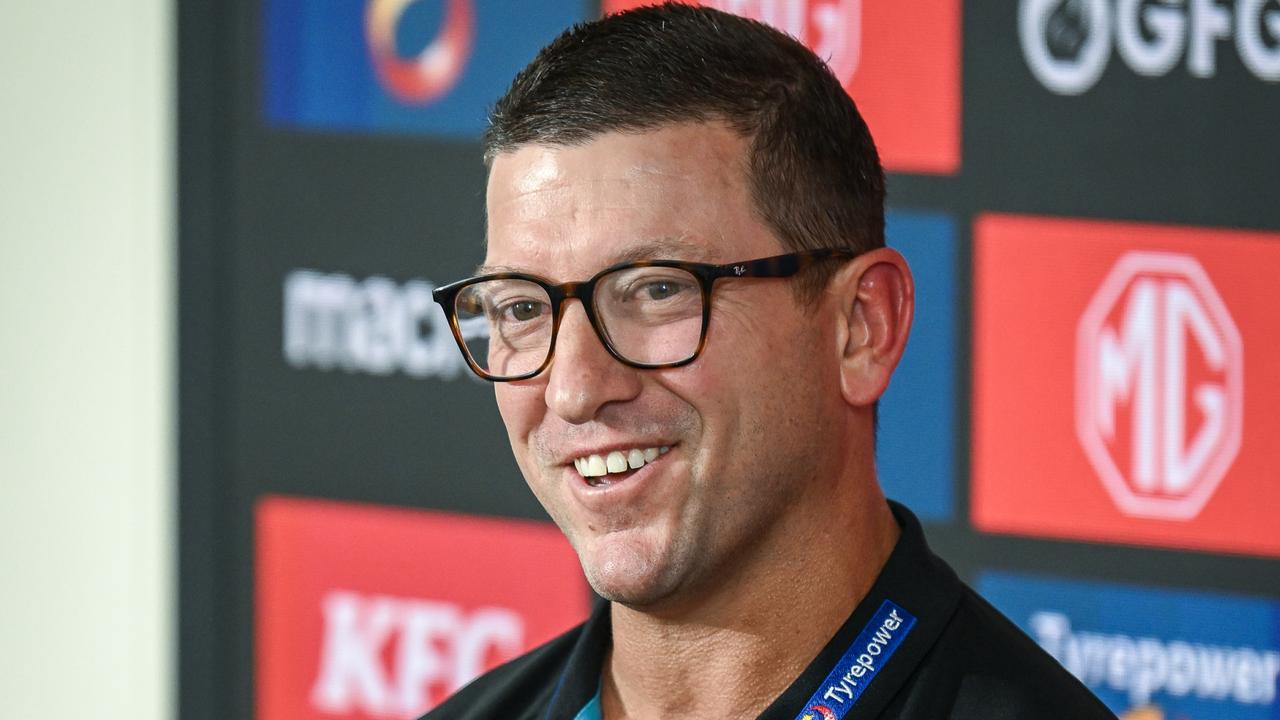Andrew Capel looks at where it all went wrong for Port Adelaide
PORT Adelaide coach Ken Hinkley is a realist. The Power’s skill level is not up to scratch and he’s not trying to hide it.
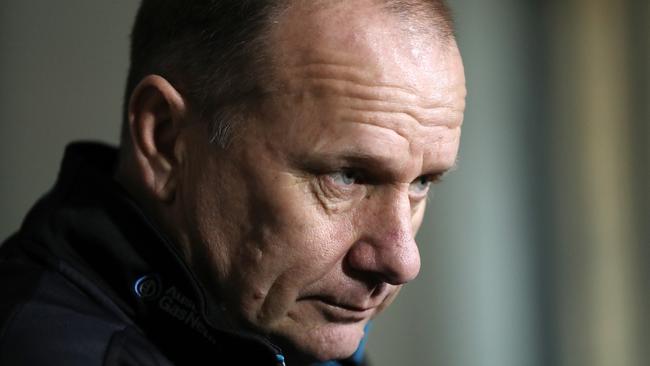
Port Adelaide
Don't miss out on the headlines from Port Adelaide. Followed categories will be added to My News.
PORT Adelaide coach Ken Hinkley is a realist.
The Power’s skill level is not up to scratch and he’s not trying to hide it.
“There’s some stuff in our game style we need to tinker with and play around with and make some adjustments to,” Hinkley said when asked what went so wrong this year after pre-season hopes of a top-four finish ended in a second consecutive year without finals football.
“There’s some skill deficiencies we haven’t been able to get right over a period of time and we’ve got to spend a lot of time trying to improve in those areas.
“There’s two or three key parts of our game we’ve got to fix.”
Skills are at the top of the agenda.
In a season in which so much went wrong for Port from the moment No. 1 ruckman Paddy Ryder and clever small forward Angus Monfries were banned over the Essendon supplements saga the team’s inability to hit targets stood out like a beacon.
The Power ranked rock-bottom in kicking efficiency (62.2 per cent) and averaged 23.7 clanger kicks a game, the most in the competition.
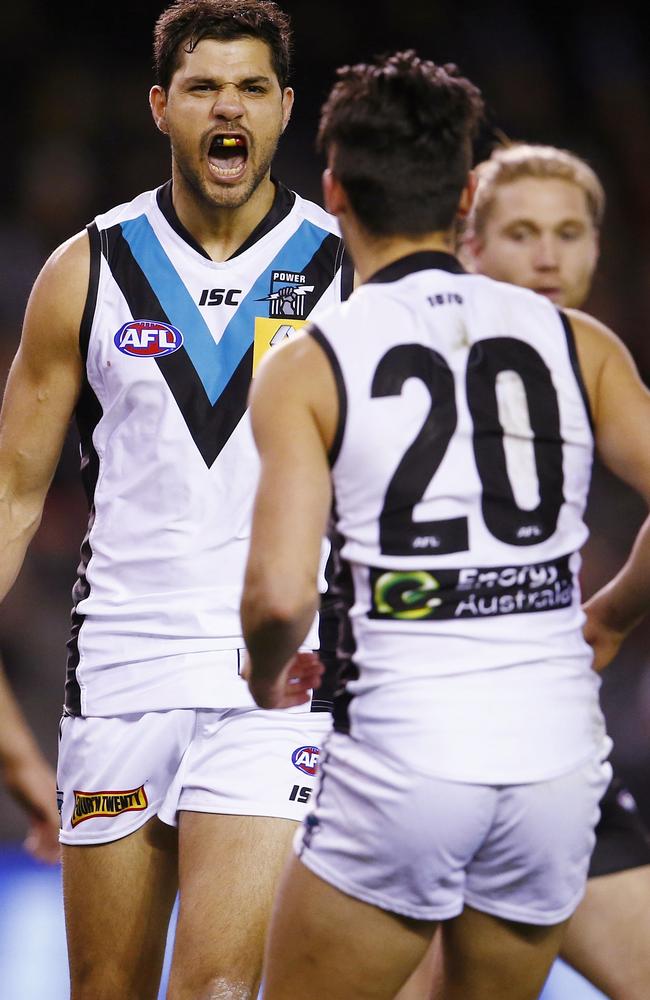
These were arguably the most damning of all the statistics that illustrate why Port finished 10th — its lowest ladder position in Hinkley’s four years in charge and worst since Matthew Primus was sacked in 2012 during a 14th-placed season.
Ace midfielder Ollie Wines — a powerful clearance and contested ball winner — was the biggest culprit with a kicking efficiency percentage of just 40.1 while he led the club in clanger kicks with 54.
The Power ranked lowly in a host of other key statistical categories.
It was 14th in disposal differential (-17.8), 13th in contested possession differential (-4.8), 14th in uncontested possession differential (-12.6), 14th in clearance differential (-1.5) and last in hitouts-to-advantage differential (-7.3).
Hitouts and clearance numbers were clearly affected by the pre-season loss of Ryder and poor form and long-term knee injury to his sidekick Matthew Lobbe.
This forced Port to ruck regular key defender Jackson Trengove and while he toiled manfully he was undersized and forced to punch above his weight.
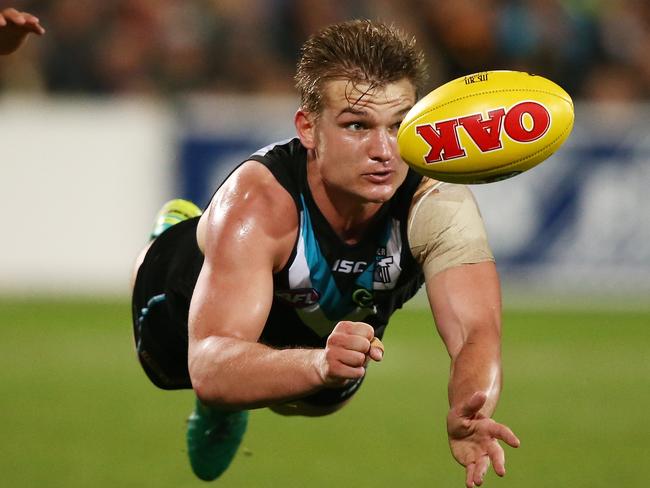
A rash of injuries to key players also hurt the Power in its quest to climb back to the finals after its fall from third in 2014 to ninth last year.
Hinkley didn’t hold back in his assessment of Port’s season.
“It’s pretty clear, it’s pretty disappointing,’’ he said.
“We set out at the start to be a part of the finals and we are not a part of that clearly, so that makes it a very disappointing season and one that we know we haven’t delivered on what we wanted, so you can’t describe it any more or any less than being disappointed.
“We haven’t got where we wanted to go, we set out at the start of the year to achieve some stuff and we haven’t done that.
“The disappointing part about that is that we’ve had opportunities throughout the season to make more of some situations and we just weren’t able to complete the task.
“That was within games, it was week to week, month to month, all the way through it has been quite frustrating and inconsistent.’’
But there were some positives.
Robbie Gray had another brilliant season, despite remarkably missing selection in the 40-man All-Australian squad.
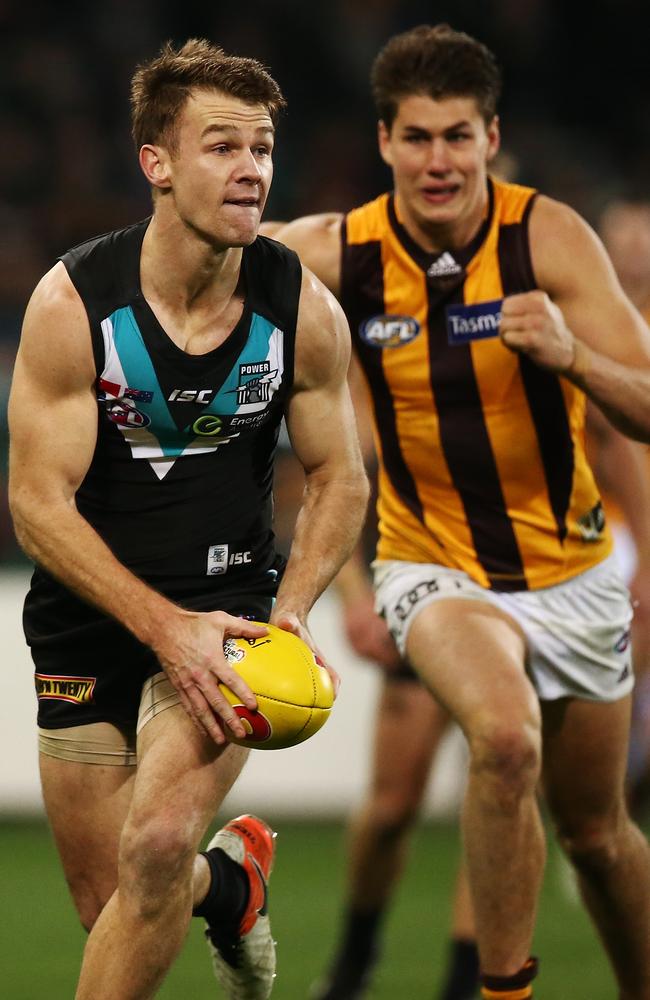
Gray ranked elite for contested possessions (13.6), clearances (6.1), inside 50s (4.6), goals (1.3), score assists (1.6) and score involvements (8.2) and above average for ranking points (108), disposals (26.3) and metres gained (402).
Dashing half-back Jasper Pittard — an All-Australian nominee — enjoyed a big jump in Champion Data ranking points from 80.4 to 91.8 while forward Aaron Young (+31.7), Trengove (+17.2) and youngsters Jarman Impey (+9.8) and Karl Amon (+8) also enjoyed significant rises.
Hamish Hartlett (-22.9), Chad Wingard (-16.9), Brad Ebert (-16.34), Justin Westhoff (-9.9) and captain Travis Boak (-7.9) suffered the biggest ranking point drops in what were below-par seasons by their lofty standards.
Port also uncovered some players, with Rising Star nominee Darcy Byrne-Jones, Logan Austin, Dougal Howard, Jesse Palmer, Riley Bonner and Will Snelling debuting.
“That gives you some comfort,” Hinkley said.
andrew.capel@news.com.au

